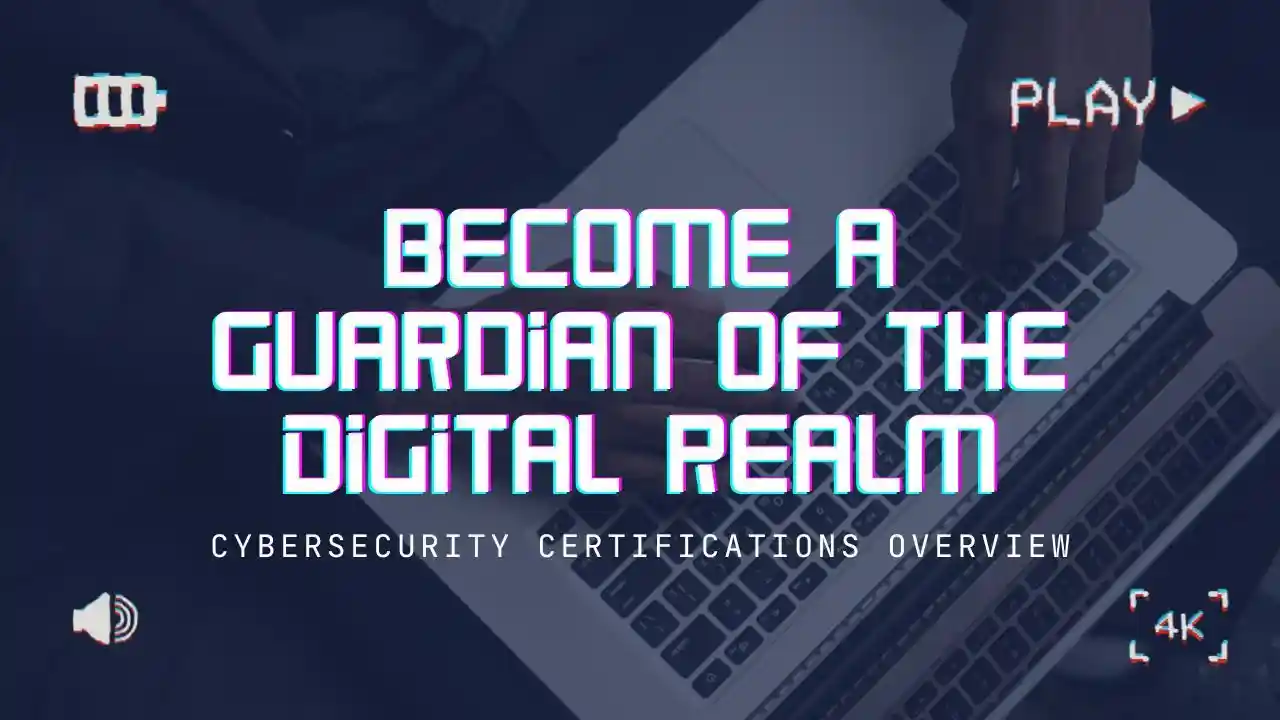Ethics in Cloud Computing: Navigating the Moral Landscape
Jan 07, 2025 - Cloud Computing

In a world where digital threats are growing more sophisticated by the day, the demand for skilled cybersecurity professionals has never been higher. Cybersecurity certifications are crucial for individuals seeking to establish themselves as experts in defending against cyberattacks, ensuring data security, and protecting vital digital infrastructure. This cybersecurity certifications overview will highlight the most important certifications available, their benefits, and how they can help you thrive in the fast-paced, ever-evolving world of cybersecurity.
As cybercrime continues to rise, organizations worldwide are investing heavily in protecting their systems from data breaches, malware, ransomware, and other forms of digital threats. For aspiring cybersecurity professionals, certifications are the gold standard in proving expertise and understanding of industry best practices.
These certifications not only validate your knowledge but also signal to employers that you possess the necessary skills to defend their networks, systems, and data. With certification, you gain credibility and open doors to job roles such as Security Analyst, Penetration Tester, and Information Security Manager.
Certified Information Systems Security Professional (CISSP)
The CISSP is one of the most respected and globally recognized certifications in cybersecurity. It covers a wide range of topics, including security and risk management, asset security, and software development security. This certification is ideal for experienced professionals looking to advance into senior roles like Chief Information Security Officer (CISO).
Certified Ethical Hacker (CEH)
If you're intrigued by how hackers think and operate, the CEH certification might be for you. This credential equips cybersecurity professionals with the skills to think like a hacker and identify potential vulnerabilities in systems before malicious attackers can exploit them. CEH-certified professionals are highly valued in penetration testing and vulnerability assessment roles.
CompTIA Security+
For those just starting their cybersecurity journey, CompTIA Security+ is an excellent entry-level certification. It provides foundational knowledge in network security, compliance, and operational security. This vendor-neutral certification is recognized across industries and sets the stage for more advanced certifications.
Certified Information Security Manager (CISM)
Designed for professionals looking to manage and oversee enterprise-level security programs, the CISM certification focuses on governance, risk management, and security incident management. It's an ideal choice for those in or aiming for leadership roles in cybersecurity.
Certified Cloud Security Professional (CCSP)
With the rise of cloud computing, securing cloud environments has become a top priority. The CCSP certification is designed for professionals who want to demonstrate their skills in securing cloud infrastructures and data. As more businesses move to the cloud, CCSP-certified professionals are in high demand.
Cybersecurity certifications are not just a piece of paper; they provide tangible career benefits that can significantly impact your professional journey:
Career Advancement: With the global cybersecurity workforce gap, certified professionals are often promoted faster and offered leadership roles due to their proven expertise.
Higher Salaries: Certified cybersecurity professionals typically earn higher salaries compared to their non-certified counterparts. The investment in certification often leads to higher returns in the form of better pay.
Increased Job Security: In a field where the demand far exceeds the supply, certifications provide job security as they demonstrate your competence to employers looking to safeguard their organizations.
Enhanced Knowledge: Certifications often require staying updated with the latest threats and technologies, ensuring that your skills remain relevant in an ever-changing landscape.
The right certification for you will depend on your career goals, experience level, and the specific area of cybersecurity you wish to specialize in. For beginners, foundational certifications like CompTIA Security+ provide a solid starting point. Those seeking to focus on ethical hacking or penetration testing might consider the CEH, while experienced professionals looking for leadership roles should explore CISSP or CISM.
It’s also crucial to consider industry trends. For example, with the increasing reliance on cloud technologies, certifications like CCSP are becoming more valuable. Additionally, vendor-neutral certifications such as Security+ provide flexibility and broad applicability across different industries.
As the digital world becomes more interconnected, the need for robust cybersecurity measures has never been more critical. Cybersecurity certifications not only validate your skills but also prepare you to tackle real-world challenges in protecting valuable data and systems. Whether you’re just starting out or aiming for an advanced role, obtaining the right certification can significantly boost your career prospects, earning potential, and credibility. Invest in your cybersecurity education today and become a guardian of the digital realm
Copyright © 2026 ByteTechBlog By infyable.com. All Right Reserved.